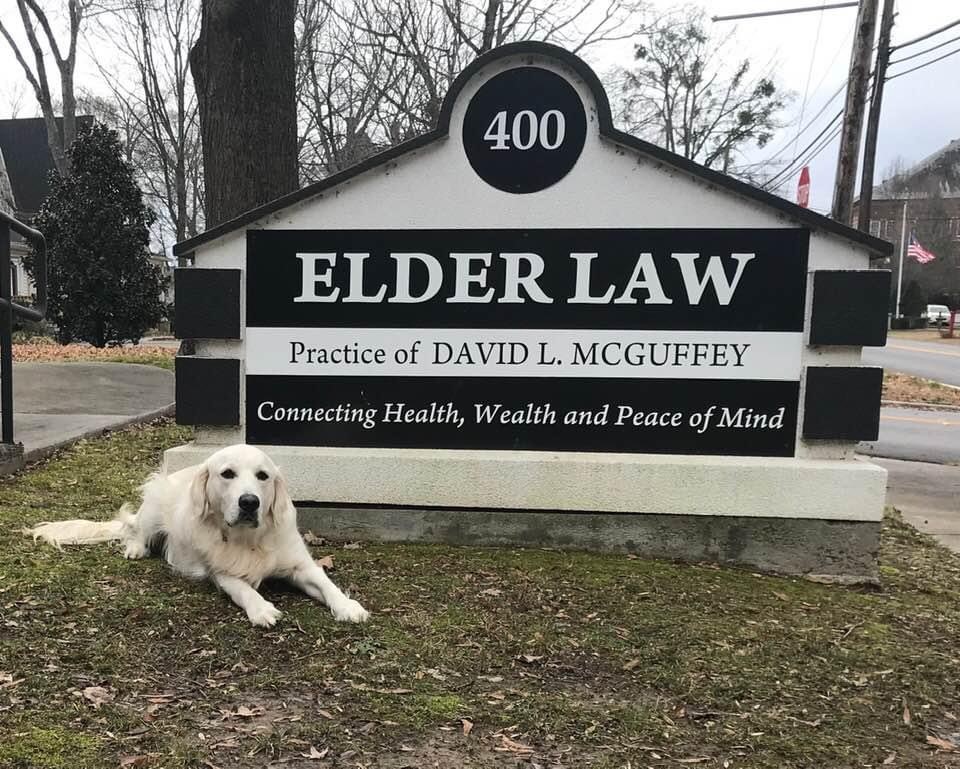Administrator
When someone dies without a Will, an Administrator is appointed. Typically, an Administrator has less authority than an Executor and must seek Court approval for certain actions. Also, an Administrator is frequently required to post bond and file reports with the Court. The additional oversight frequently makes administration more expensive than the cost of probating a Will. See Probate.
Advance Directive
Also called an Advance Directive for Health Care or a Health Care Advance Directive. In Georgia this document takes the place of two old forms, the living will and the health care power of attorney. It is used to serve several purposes. First, it allows you to designate a health agent who will speak to health care providers and make health decisions if you are unable to do so. Second, it allows you to designate your end-of-life preferences. Third, it allows you to designate your wishes concerning the disposition of your body after death (e.g., buried or cremated). Finally, it allows you to designate the person who would serve as guardian if you need a guardian.
Ancillary Administration
When someone dies owning property in more than one State, ancillary administration is necessary to deal with property that is not in the Decedent’s home state. Generally this increased the expense of Probate. Often a Living Trust is used to avoid ancillary administration.
Annual Exclusion
An exclusion from taxes for monetary gifts made each year. There is a common misperception that gifts are limited to this exclusion amount. That misperception is based on ignorance of the tax rules. The annual exclusion is in addition to each individual’s life-time estate and gift tax exclusion. In other words, you do not need the annual exclusion unless your value of all gifts made throughout your life-time exceeds the life-time exclusion amount. In 2015, the life-time estate and gift tax exclusion is $5,430,000. Most people will never give away that much money so the annual exclusion ($14,000 in 2015) has little meaning.
Annuity
If an annuity is in payment status, then it means payment of a specific amount on a periodic basis for a specific length of time. Some annuities are deferred, which means they are not in payment status and you could still recover your funds in a lump-sum payment. Medicaid regulates annuities. You should consult a Certified Elder Law Attorney before purchasing an annuity.
Attorney-in-Fact
This is the official title of the person who serves as your agent under a power of attorney for financial matters. Sometimes it is abbreviated “AIF.” Sometimes people used the abbreviation “POA” but that abbreviation actually refers to the power of attorney document appointing the agent.
Beneficiary
A person or entity designated to receive a benefit from an estate, trust or other arrangement designed to transfer assets. For example, life insurance policies and retirement accounts usually have beneficiaries. Contracts may have beneficiaries.
Codicil
An amendment to a will. A codicil must be executed with the same formality as a Will. Codicils used to be common when Wills are hand-typed, but now that most lawyers use word processors, it’s usually less confusing (assuming the same lawyer prepares the amendment) to make changes and execute a new Will.
Conservator
A court appointed individual or agency charged with looking after money and property belonging to a minor or incompetent person. Prior to revisions in the law, Georgia referred to the individual charged with personal well-being as Guardian of the Property.
Death Probate
See Probate.
Decedent
A person who passed away. This term can be used in any context, but most frequently it is used when probate or administering an estate.
Donee
A person or entity receiving a gift.
Donor
A person or entity making or giving a gift.
Elder Abuse
A term used to describe harm done to seniors. Typically Elder Abuse is defined by statute. The National Elder Abuse Incidence Study describes Elder Abuse as consisting of physical abuse, emotional abuse, financial abuse, neglect and self-neglect.
Estate
The term “estate” is most frequently used to describe assets owned by a decedent and all of his or her liabilities. However, it also used to describe what a Ward owns in a Conservatorship, and is used to describe what anyone owns when he or she is doing estate planning.
Estate Tax
A transfer tax levied on an estate valued at more than the excludable amount as determined by the IRS. In 2015, the life-time estate and gift tax exclusion is $5,430,000. Currently, only 1% of U.S. decedents will pay estate or gift taxes.
Executor
The person named in a Will to oversee the Probate process. If no Executor is named, then a Petition may be filed for Administration with Will Annexed.
Fiduciary
A general term used to describe a person who owes a duty to someone else. Usually a fiduciary is a person or institution serving as Trustee, Attorney-in-Fact, or Conservator.
Grantor
A tax term to describe the individual who establishes or funds a trust. Other non-tax terms include Settlor and Trustor. Some trusts are referred to as Grantor Trusts because income is taxed to the person who established or funded the Trust.
Guardian
A court-appointed individual or agency in charge of the care of a minor or incompetent person’s physical well-being. Prior to revisions in the law, Georgia referred to the individual charged with personal well-being as Guardian of the Person.
Guardianship
A guardianship is a Court supervised process for protecting individuals with limited capacity. In Georgia, the Probate Court has jurisdiction over guardianship actions. In Tennessee, the Chancery Court has jurisdiction. Both Georgia and Tennessee look for the same evidence in determining whether a guardianship should be approved: Does the individual who is the subject of the guardianship (the Ward) lack the ability to make or communicate significant decisions about himself or herself, or about his or her finances. The Court does not weigh the quality of an individual’s decisions (except in extreme cases); rather, the Court’s role is limited to determining whether the potential Ward can make decisions. The process of making this determination begins by filing a Petition with the Court. The Court then appoints an appropriate professional to evaluate the potential Ward. Assuming the Court finds good cause, a hearing will be set and evidence will be taken (e.g., witness testimony, documents, photographs, etc.). The Court then determines whether to appoint a guardian. If a guardian is appointed, that individual is under the Court’s supervision and must account for the Ward’s well-being and how the Ward’s money and property is used.
Irrevocable Trust
A trust in which the Grantor has not reserved the right to revoke and cannot change the structure of the trust. Frequently, the Grantor reserves power over certain matters, such as adding additional beneficiaries by naming them in his or her Will. Today, many Irrevocable Trusts identify a Trust Protector who has authority to make limited modifications to the Trust.
Living Probate
See Guardianship.
Living Trust
A trust established and operating during the trustor’s lifetime. Living Trusts are sometimes called Intervivos Trusts. Most living trusts are revocable and are used primarily to avoid probate. Prior to the increase in the estate tax exemption, living trusts were used to divide assets between spouses to maximize use of each spouse’s estate tax exemption. Living Trusts are also used to ensure proper division of assets among children from different marriages, to avoid ancillary probate, and to provide creditor protection to the next generation.
Medicaid
A welfare program (42 U.S.C.A. § 1396 et seq.) that pays covered medical expenses of low-income and low asset individuals who are aged, blind, or disabled.
Medicare
An entitlement program (42 U.S.C.A. § 1395 et seq.) that pays covered acute health care expenses for individuals 65 and older, or who have been receiving disability for 24 or more months. In most cases, anyone 65 or older who is eligible for Social Security benefits is also entitled to Medicare coverage.
Personal Representative
A gender neutral term used to describe an Executor or Administrator.
Principal
A person who has appointed an Agent, usually under a Power of Attorney. An Agent owes the Principal a fiduciary duty and must act in the best interests of the Principal.
Per Stirpes
A way of decribing the distribution of an estate. An estate is distributed per stirpes if each branch of a family recieves an equal share of the estate. For example, If Tom has three children (Mark, John and David), and one of those children (John) predeceased Tom, then John’s share of the estate passes to John’s two children. The result is Mark and David receive one-third each, and John’s children receive one-sixth each. Contrast this against a per capita distribution. If Tom’s Will provided that this estate should be distributed per capita among his lineal descendants, then using the same example, Mark and David would receive one-fourth each, and John’s two children would receive one-fourth each.
Power of Attorney
A document appointing an Attorney-in-Fact or agent to manage your financial affairs. The documents might also be called a General Power of Attorney or a Durable Power of Attorney. If a Power of Attorney is not durable then it becomes ineffective after an individual loses capacity. Today, Georgia law presumes all Powers of Attorney are durable unless they state otherwise. Powers of Attorney terminate upon the death of the Principal.
Probate
A court supervised proceeding used to gather (marshal) assets owned by a deceased person, pay legal debts, and distribute the remainder to heirs. When someone has a Will, the Will is probated (or proved). When someone dies without a Will, it is administered. In Georgia, probate (and administration) begin when the appropriate petition is filed in the Probate Court.
Revocable Trust
A revocable trust is one where the Grantor has a right to revoke or terminate the Trust. Virtually all revocable trusts are also Living Trusts. There are, however, exceptions where a beneficiary has the right to revoke the trust. If you are planning for someone with special needs, it is important to ensure that the special needs beneficiary does not have a right to revoke the trust; otherwise the trust assets will count toward eligibility for public benefits.
Testator
The person executing (signing) a Will. Sometimes the term Will-maker is used.
Trust
A legal arrangement that separates different property rights in the same property. Trusts originated in English law (although the Romans, Germans and Islamic law deserve some credit). Most trusts are written, and the trust agreement places terms and conditions on the use of property. Property is managed by a Trustee, who is required to adhere to the terms of the Trust. The Property is used for the Beneficiary, although the Trust Agreement might place terms and conditions on that use (e.g., for education). One legal definition for Trusts is “a fiduciary relationship with respect to property arising from a settlor’s intention to impose equitable duties on a person [the trustee] to hold, manage, or otherwise administer that property for the benefit of another person [the beneficiary].”
Trustee
A person or entity named in a trust agreement to be responsible for holding and administering trust assets. See Trust.
Trustor
A person who creates a trust. Also called a “Grantor” or “Settlor.”
Will
A legal document designating how a Decedent wants his or her property distributed following the Decedent’s death.
























